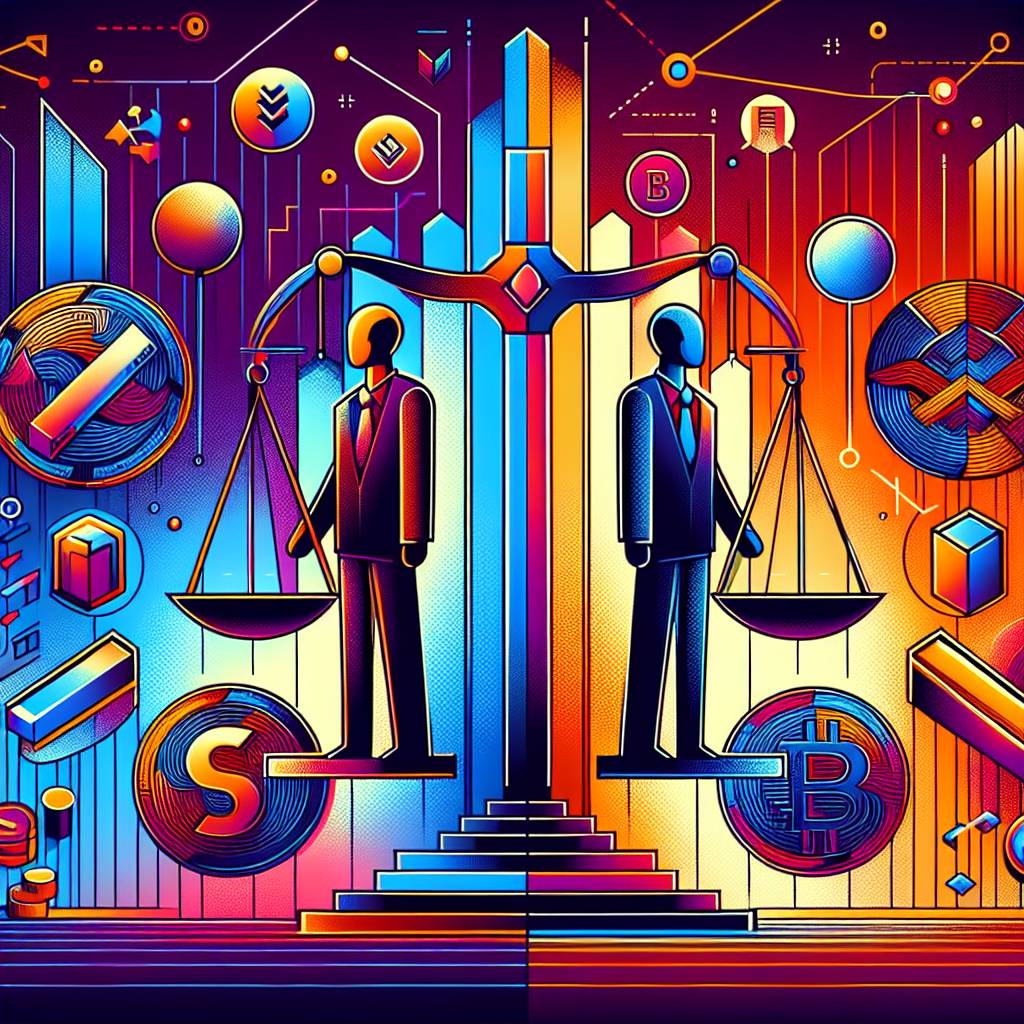What are the differences between DAI and Tether in the world of cryptocurrency?
Can you explain the key differences between DAI and Tether in the cryptocurrency industry? How do they differ in terms of stability, decentralization, and underlying mechanisms?

3 answers
- DAI and Tether are both stablecoins in the cryptocurrency world, but they have some fundamental differences. DAI is a decentralized stablecoin that is backed by collateral, primarily Ethereum. It maintains its stability by using smart contracts and algorithms to adjust its supply based on market demand. On the other hand, Tether is a centralized stablecoin that is pegged to the value of traditional fiat currencies, such as the US dollar. It achieves stability by holding reserves of these fiat currencies in banks. While DAI offers a more decentralized and transparent approach, Tether provides a simpler and more familiar experience for users who prefer the stability of traditional currencies. In terms of decentralization, DAI is considered more decentralized than Tether. DAI operates on the Ethereum blockchain, which is a decentralized network, and its value is not controlled by any single entity. Tether, on the other hand, is issued and controlled by a centralized company, which has raised concerns about its transparency and potential risks. In terms of underlying mechanisms, DAI relies on a system of collateralized debt positions (CDPs) and smart contracts. Users can lock up their Ethereum as collateral and generate DAI tokens. If the value of the collateral falls below a certain threshold, the smart contracts automatically liquidate the collateral to maintain the stability of DAI. Tether, on the other hand, operates on a traditional banking system, where users deposit fiat currencies and receive Tether tokens in return. The reserves held by Tether are audited regularly to ensure the stability of the token. Overall, the key differences between DAI and Tether lie in their decentralization, underlying mechanisms, and approach to stability. DAI offers a more decentralized and transparent approach, while Tether provides a simpler and more centralized experience. Both stablecoins have their own advantages and use cases, and it ultimately depends on the preferences and needs of the users.
 Jan 07, 2022 · 3 years ago
Jan 07, 2022 · 3 years ago - DAI and Tether are two popular stablecoins in the cryptocurrency industry, but they have different approaches to maintaining stability. DAI achieves stability through its decentralized nature and collateralized debt positions (CDPs). Users lock up their Ethereum as collateral and generate DAI tokens, which are algorithmically adjusted to maintain a stable value. Tether, on the other hand, achieves stability by pegging its value to traditional fiat currencies, such as the US dollar. This means that for every Tether token issued, there should be an equivalent amount of fiat currency held in reserves. Another key difference between DAI and Tether is their level of decentralization. DAI operates on the Ethereum blockchain, which is a decentralized network, while Tether is issued and controlled by a centralized company. This has led to concerns about the transparency and stability of Tether, as it relies on the trustworthiness of the company behind it. In terms of user experience, Tether provides a more familiar and stable value, as it is pegged to traditional fiat currencies. This makes it easier for users to understand and use in their everyday transactions. DAI, on the other hand, offers a more decentralized and transparent approach, which may appeal to users who value these principles. Overall, the differences between DAI and Tether lie in their stability mechanisms and level of decentralization. DAI offers a decentralized approach through collateralized debt positions, while Tether provides stability through its peg to traditional fiat currencies. The choice between the two depends on the user's preferences and priorities.
 Jan 07, 2022 · 3 years ago
Jan 07, 2022 · 3 years ago - DAI and Tether are two stablecoins that serve different purposes in the cryptocurrency industry. DAI is known for its decentralized nature and stability mechanism, while Tether is popular for its simplicity and stability. DAI is a decentralized stablecoin that operates on the Ethereum blockchain. It is backed by collateral, primarily Ethereum, and its value is maintained through smart contracts and algorithms. DAI's supply is adjusted based on market demand, ensuring its stability. On the other hand, Tether is a centralized stablecoin that is pegged to the value of traditional fiat currencies, such as the US dollar. It achieves stability by holding reserves of these fiat currencies in banks. In terms of decentralization, DAI is considered more decentralized than Tether. DAI operates on a decentralized blockchain network, while Tether is issued and controlled by a centralized company. This difference in decentralization has led to debates about the trustworthiness and transparency of Tether. When it comes to user experience, Tether provides a more familiar and stable value, as it is pegged to traditional fiat currencies. This makes it easier for users to understand and use in their daily transactions. DAI, on the other hand, offers a more decentralized and transparent approach, which may appeal to users who value these principles. In conclusion, DAI and Tether differ in terms of their stability mechanisms, decentralization, and user experience. DAI offers a decentralized approach with collateralized assets, while Tether provides simplicity and stability through its peg to traditional fiat currencies.
 Jan 07, 2022 · 3 years ago
Jan 07, 2022 · 3 years ago
Related Tags
Hot Questions
- 74
How can I minimize my tax liability when dealing with cryptocurrencies?
- 69
How does cryptocurrency affect my tax return?
- 69
What are the best practices for reporting cryptocurrency on my taxes?
- 62
How can I protect my digital assets from hackers?
- 40
How can I buy Bitcoin with a credit card?
- 37
What are the best digital currencies to invest in right now?
- 30
Are there any special tax rules for crypto investors?
- 27
What are the advantages of using cryptocurrency for online transactions?
